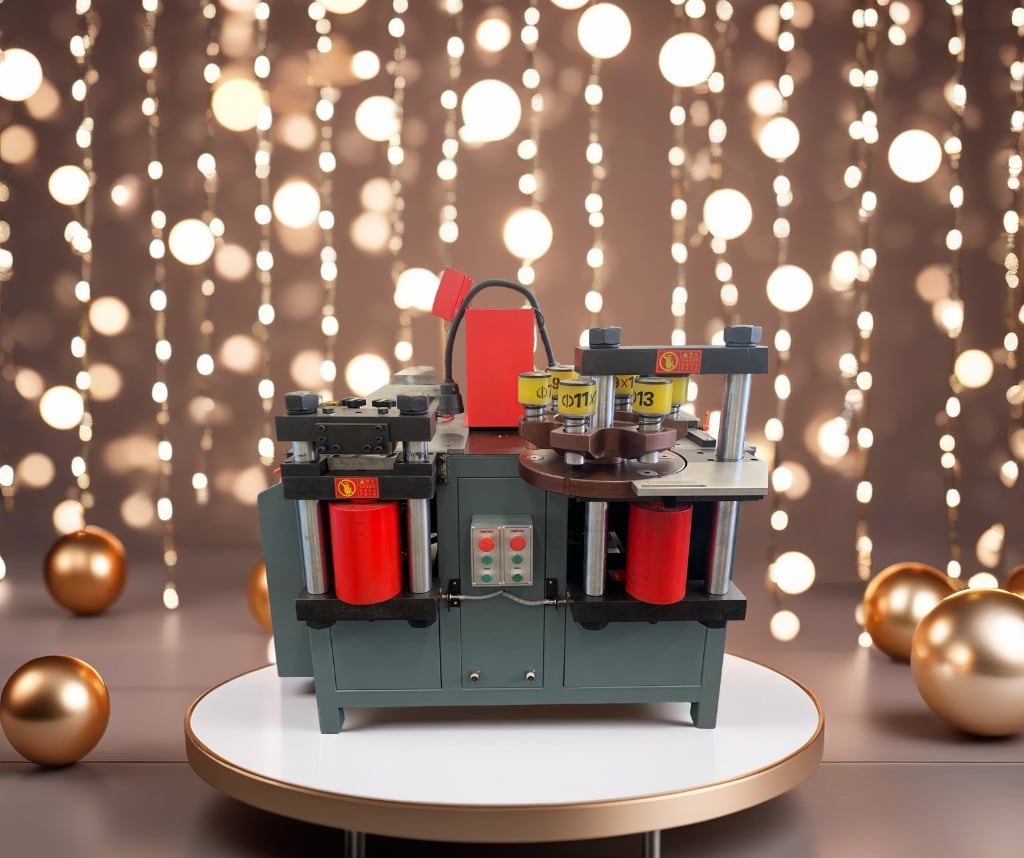Middle East New Energy Transformation Dividend: Saudi Arabia Photovoltaic Energy Storage Projects Give Rise to Which Busbar Processing Machine Special Needs?
7/11/20255 min read


Introduction to Saudi Arabia's Energy Transformation
Saudi Arabia is undergoing a significant energy transformation that aims to reshape its energy landscape and diversify its economy. Historically reliant on fossil fuels, the nation has recognized the urgent need to integrate renewable energy sources to ensure a sustainable future. Central to this transformation is the ambitious goal of generating a substantial portion of its energy from renewable sources, with a particular focus on photovoltaic (PV) solar energy.
The geographical and climatic conditions of Saudi Arabia provide an exceptional opportunity for maximizing solar energy harnessing. With vast desert areas and high solar irradiance, the country is well-positioned to capitalize on its natural resources. Harnessing solar energy not only provides a clean energy alternative but also helps reduce reliance on oil for domestic energy consumption, enabling the country to allocate more fossil fuels for exportation.
To facilitate this transition, the Saudi government has implemented a range of forward-thinking policies and financial incentives aimed at attracting local and international investments in the renewable energy sector. Initiatives such as the Saudi Vision 2030 and the National Renewable Energy Program emphasize the importance of sustainability and energy diversification. By establishing a conducive environment for innovation and investment, these policies are expected to accelerate the growth of the renewable energy sector, particularly in PV solar energy projects.
Moreover, the Saudi energy transformation is not merely an environmental strategy but also a crucial economic driver. By investing in renewable technology and infrastructure, Saudi Arabia aims to generate job opportunities, promote technological advancements, and place itself as a leader in the global renewable energy market. As the nation stands at the forefront of this shift, the importance of supporting industries and machine needs, including specialized busbar processing machines for solar projects, cannot be overstated.
Overview of Photovoltaic Energy Storage Projects
Saudi Arabia is undergoing a remarkable transformation in its energy landscape, with a notable focus on photovoltaic energy storage projects. These initiatives reflect the country’s commitment to diversify its energy sources and reduce its reliance on fossil fuels. The Sakaka PV IPP stands out as a flagship project, representing the largest solar plant in the Kingdom. With a capacity of 300 MW, this plant employs cutting-edge solar technologies, indicating a shift towards renewable energy solutions that bolster the nation’s sustainability goals.
The Sakaka project, alongside others in development, emphasizes the importance of integrating energy storage systems to enhance the efficiency and reliability of solar power generation. Energy storage technologies, such as battery systems, play a critical role in managing supply and demand, particularly given the intermittent nature of solar energy. These systems allow excess energy generated during peak sunlight hours to be stored and utilized during periods of low production, ensuring a consistent energy supply.
Collaboration among multiple stakeholders is essential for the success of these photovoltaic energy storage initiatives. Governmental bodies such as the Ministry of Energy are key players, providing regulatory support and incentives. Additionally, private sector companies contribute their expertise and financial resources, while international partnerships enable knowledge transfer and innovation. This collaborative approach not only facilitates the development of large-scale solar projects but also fosters local job creation and technological advancement.
As Saudi Arabia continues to embrace renewable energy, the integration of photovoltaic systems with energy storage solutions will significantly impact energy reliability and efficiency. This transition aligns with the Kingdom’s Vision 2030 framework, which aims to enhance energy diversification and promote sustainable development. The ongoing projects reflect the country's proactive stance in harnessing solar energy, ensuring a robust energy future for Saudi Arabia.
Challenges and Special Needs for Busbar Processing Machines
The implementation of photovoltaic energy storage projects in Saudi Arabia presents specific challenges and unique requirements for busbar processing machines. Busbars play a critical role in electrical distribution systems, serving as conductive pathways that connect different electrical components. Their significance is heightened within the context of renewable energy applications, where stability and efficiency are paramount to support the modernization of energy infrastructures.
As photovoltaic energy systems are integrated with energy storage solutions, the processing needs for busbars undergo a transformation. The fluctuations in energy production, dictated by solar availability, necessitate busbars that can handle varying loads effectively. This requirement calls for advanced materials and manufacturing techniques that enhance the durability and performance of busbars under different operational conditions. Additionally, the capacity to manage peak loads and store excess energy introduces complexity into busbar designs, leading to the development of new configurations tailored for energy storage systems.
Moreover, the variations in busbar designs are driven by diverse energy storage technologies, such as lithium-ion batteries and other innovative solutions. Each technology demands specific modifications to busbar dimensions and material properties to optimize performance and ensure safety. Technical specifications, including thermal conductivity, mechanical strength, and resistance to corrosion, must be meticulously addressed to align with the unique demands posed by renewable energy applications.
In terms of manufacturing processes, adherence to industry standards is essential to guarantee reliability and efficiency for these busbar systems. As the market evolves, manufacturers must remain agile, incorporating advanced technologies such as automated machinery and precise fabrication methods to meet the increasing specifications. These challenges illustrate the necessity for a dedicated approach to busbar processing machines to support the burgeoning photovoltaic energy storage projects across the region.
Conclusion and Future Outlook
The energy transformation currently unfolding in Saudi Arabia signifies a pivotal shift in the region’s approach to renewable energy, particularly through photovoltaic energy storage projects. These initiatives are not only crucial for reducing the nation’s carbon footprint but also serve as a potential model for other countries seeking to invest in sustainable energy solutions. The integration of advanced busbar processing machinery will play a critical role in this transition, ensuring efficient distribution and management of electricity produced from renewable sources.
As Saudi Arabia pursues its ambitious Vision 2030 goals, investments in renewable energy are poised for exponential growth. The increasing reliance on solar and other sustainable energy forms presents unique opportunities for manufacturers of busbar processing machines. Adapting these machines to support the intricate needs of renewable energy applications will be essential for meeting both domestic and international demand. Features such as enhanced precision, scalability, and adaptability will be necessary as the renewable sector continues to evolve.
Technological advancements will undoubtedly shape the landscape of energy production and management in the Middle East. The adoption of smart technologies and automation in manufacturing processes will result in improved efficiency and reduced costs. Furthermore, collaboration among regional nations to share technological advancements and best practices can foster a conducive environment for growth in the renewable sector. This collaboration may further lead to innovations that enhance the capabilities of busbar processing machinery, reinforcing their relevance in a rapidly changing market.
In conclusion, the successful realization of Saudi Arabia’s vision for renewable energy will necessitate a concerted effort to align manufacturing capabilities with the needs of this dynamic sector. The journey ahead will require businesses to be agile and forward-thinking, emphasizing the continuous adaptation of machinery and processes to harness the full potential of renewable energy resources.
Innovate
Leading manufacturer of busbar processing equipment solutions.
Contact
Support
+131 2713 4627
© 2025. All rights reserved.
